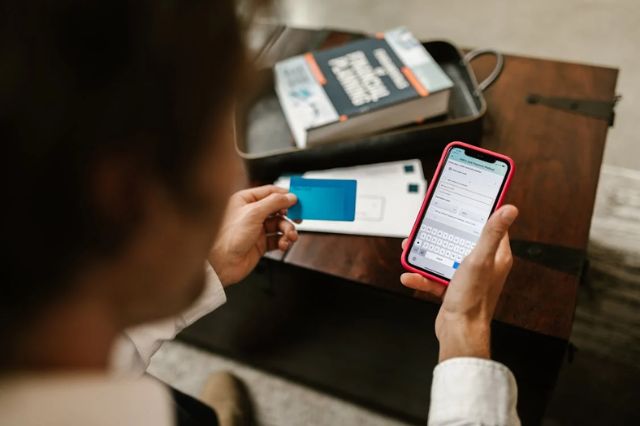Hva Er Kredittkort (What Are Credit Cards), Really: The Spending Dilemma

In today’s world, credit cards are becoming more accessible to average-income individuals, forcing us to rethink how this seemingly helpful financial tool shapes our economic standing.
Credit cards make it easy to spend money you do not have for something even as menial as your impulse candy purchase at a convenience store. At the same time, it can also entice you to make more significant purchases within your credit limit.
And with this vast range comes the risk of things quickly going out of your control.
But do we really understand how these seemingly safe plastic cards work? Generally, it may be easy to answer the question, hva er kredittkort (what are credit cards) with a textbook definition; however, beneath its simply defined words lies a complex interplay of factors that can significantly impact our financial health.
It involves examining your own psychology and how it affects your spending habits.
Common Psychological Triggers of Credit Card Usage

Credit cards can be a powerful tool that can help you effectively manage your money while also enjoying various benefits and rewards. When used efficiently, it can open you to certain financial privileges that ordinary cash purchases cannot provide.
However, it is also an avenue for great temptation for meaningless purchases–even small ones, that can add up to a significant amount that could potentially harm your financial well-being and long-term life goals.
To fully understand, here are some triggers that you need to be aware of to keep yourself in check with your spending behavior.
- Impulsive Spending
This is when you make unplanned purchases driven by immediate desires or emotions instead of rational decision-making. These purchases do not necessarily align with your short-term or long-term goals and may be in small amounts. Like a “sale” on display that evokes a sense of urgency with its limited-time offer or that coffee fix you suddenly crave when passing by a popular coffee shop chain.
Psychological stressors, such as instant gratification, emotional impulses, and social influences, play significant roles in driving impulsive purchases. At the same time, emotional triggers like stress, boredom, or loneliness can lead to retail therapy or comfort spending as a coping mechanism. Regardless of the motivation, single expenditures do not typically hurt, but collective splurges can add up quickly without notice, leading to financial strain and contributing to debt accumulation and budgetary challenges.
- Allure of Rewards
Credit cards, especially high-tier credit cards, come with premium incentives that can trigger the areas in our brain responsible for our reward system. When these areas are activated, it can influence your spending behavior and encourage you to use your credit cards for purchases, with the expectation of earning valuable incentives in return. Rewards programs often offer various perks, such as cashback on everyday purchases, travel rewards for flights or hotel stays, or points that can be redeemed for merchandise or gift cards.
Learn more about choosing the right rewards option for you: https://www.britannica.com/money/best-rewards-credit-card-cash-back
The promise of earning rewards can stimulate spending as individuals strive to maximize their benefits, sometimes leading to increased consumption and potential debt if not managed responsibly. Rubbing salt in the wound is the complexity of rewards programs, including tiered systems, rotating categories, and expiration dates. This can add another layer of challenge for consumers in optimizing their rewards and understanding their true value. Novice credit card holders may perceive these incentives as immediate rewards for every purchase, enticing them to engage in unnecessary spending solely to accumulate these rewards.
- Emotional Impact of Debt
Credit card debt can have significant emotional consequences, affecting individuals’ overall well-being and mental health. The burden of debt often brings about adverse emotions, such as stress, anxiety, and guilt, creating a cycle of emotional distress that can impact various aspects of life. Financial worries and the pressure of managing debt can lead to heightened levels of these negative emotions, affecting sleep patterns, relationships, and overall quality of life. Individuals may have more apprehensions about their financial future, uncertainty about their ability to meet debt obligations, and paralyzing regret over past spending decisions that contributed to their debt.
More importantly, the emotional toll of debt can hinder long-term financial goals and aspirations, limiting your ability to save, invest, or pursue opportunities for personal and professional growth. With sufficient funding for your goals, you can take out more loans, which, in the end, becomes an endless cycle that may be more difficult to rise from. Managing the emotional impact of debt is essential for promoting overall well-being and developing healthy coping mechanisms to address financial challenges effectively.
Strategies for Managing Psychological Triggers

Credit cards are not necessarily the bad guys per se. The objective is to steer clear of falling into a debt cycle or to break free from it if you are already trapped. It is not a one-time solution, though; it requires efficient strategies combined with awareness and discipline.
- Mindful Spending
Mindful spending involves increasing awareness of one’s spending habits and making intentional choices to avoid impulsive purchases. When practicing mindfulness, you can develop a deeper understanding of your motivations and triggers for spending, allowing you to make more conscious decisions with your money. You can make use of techniques such as pausing before making a purchase, taking a moment to reflect on whether the item is truly needed, and considering the long-term implications of the purchase to help you avoid succumbing to impulsive buying tendencies.
Visit this helpful site to learn more about designing your own spending tracker online.
Another helpful strategy for mindful spending that has helped impulsive buyers worldwide is to make expense tracking a habit. Tracking expenses regularly and setting spending limits can provide accountability and reinforce conscious decision-making, helping you stay within your budgetary constraints. Of course, the most critical aspect is your self-control and discipline to stay within your means and prioritize paying off your existing debts and growing your savings.
- Setting Clear Goals and Priorities
Establishing clear financial goals and priorities is essential for guiding your spending decisions and staying focused on long-term objectives. By defining specific goals, such as saving for a down payment on a home, paying off debt, or building an emergency fund, you can create a roadmap for your financial journey. You must align your spending habits to these goals to help you prioritize essential expenses that support your overarching objectives while minimizing discretionary spending on non-essential items.
A helpful feature that can be added to your expense tracker is a visual representation of your goals and priorities. When these aspirations are always in your line of vision, you will be more inspired to regulate your urge to spend. When you regularly reassess these goals and priorities, you can swiftly adapt your purchase behavior to reflect changing circumstances and ensure you remain on track toward achieving your financial objectives.
- Creating Psychological Barriers
Another effective strategy is to implement psychological barriers to impulse spending so you can disrupt your automatic spending patterns and make more deliberate choices with your income. One relatively easy and quick way to do this is to remove saved payment information from online accounts, so you are required to manually enter your payment details for each purchase, which can potentially deter your sense of urgency to check out items. You can also set up spending alerts or notifications, as they provide real-time feedback on your spending behavior, alerting you when you exceed predetermined thresholds or deviate from your budgetary targets.
On the other hand, this doesn’t mean you should ultimately deny yourself the pleasure of buying something pleasurable for yourself. You can leverage behavioral economic principles to manage these purchases effectively—strategies like the pre-commitment strategy, where you set aside funds for specific and essential purposes in advance.
Another step is the choice architecture, where you understand how businesses organize their shopping environment and use it to your advantage to promote desired behaviors. This can mean setting your personal defaults on online shops so you always opt for the cheapest shipping options or checkout items only on sale. You can also use available price comparison tools and apps for shopping lists to help you navigate your choices.

While the above strategies can guide you from the debt cycle that credit cards can put you in, you will need much more to drive your economic well-being to optimum health. You will need to think long-term, which involves creating a financial responsibility habit.
This includes creating a budget that accounts for income, expenses, and savings goals, allowing you to gain control over your financial situation and make informed spending decisions.
Overall, financial literacy paves the way to financial freedom. Education, in all its forms, is an empowerment tool. When it comes to finance management, it will help you navigate the complex networks of personal finance, which covers your budgeting, debt management, and responsible credit card usage.
Financial literacy resources can be paid courses, books, and online tools that provide valuable insights into critical financial concepts and strategies for building a solid foundation for long-term financial success.



